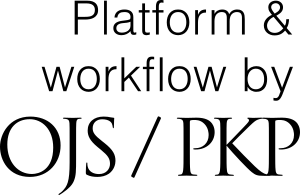Alcohol consumption, depression, stress and anxiety in post-pandemic university students: exploratory study
DOI:
https://doi.org/10.48797/sl.2025.328Keywords:
Selected Oral CommunicationAbstract
Background: The COVID-19 pandemic disrupted students' lives, impacting mental health and behaviors [1,3]. Increased anxiety, depression, and alcohol use were reported, influenced by social isolation and academic stress [1,2]. This study explores these effects on Portuguese university students in the post-pandemic period. Objective: This study aimed to investigate the impact of the post-COVID-19 pandemic period on alcohol consumption, as well as on stress, anxiety, and depression levels among university students, analyzing the possible influence on their mental health. Methods: The research followed a quantitative, descriptive-correlational, and cross-sectional design, with non-probabilistic convenience sampling. Participants included students aged 18 years or older, who were regularly enrolled in a higher education institution in Portugal. The study applied sociodemographic characterization questionnaires, the Alcohol Use Disorders Identification Test (AUDIT) to assess alcohol consumption, and the Depression, Anxiety, and Stress Scale (DASS-21). The collected data were analyzed using descriptive and inferential statistics, with a significance level of p < 0.05. Results: A significant percentage of students increased alcohol consumption during the analyzed period, with 12.6% classified as engaging in harmful use or probable dependence. Regarding mental health, 41.4% reported moderate to extremely severe depressive symptoms, 27.5% had extremely severe anxiety, and 36.2% experienced moderate to severe stress. Factors like age, marital status, and year of study showed significant correlations with mental health indicators, suggesting these factors influence students' coping strategies. The findings highlight the need for prevention and intervention strategies to reduce harmful alcohol use and manage anxiety, depression, and stress. Higher education institutions should collaborate with healthcare professionals to create support programs, provide mental well-being workshops, and promote healthy lifestyles. Longitudinal studies are crucial to monitor these factors and assess intervention effectiveness. Conclusions: The post-pandemic period may have worsened alcohol consumption and mental health issues among university students. Adopting psychological support strategies and promoting healthy habits are crucial to minimizing negative impacts on academic performance and quality of life, fostering a safer university environment that supports personal and professional growth.References
1. Alsoghair M.I. et al. Prevalence of depression and anxiety among qassim university students during the COVID-19 pandemic. In Cureus 2023, doi: 10.7759/cureus.34866.
2. Gouveia, C.P. Burnout e ansiedade nos estudantes de medicina: Impacto dos estilos de vida e hábitos de estudo. In Repositório da Universidade de Lisboa, 2018.
3. Martins, T.B. et al. Impact of social isolation during the COVID-19 pandemic on the mental health of university students and recommendations for the post-pandemic period: A systematic review. In Brain, behavior, & immunity – health 2025, Volume 43, p. 100941, doi: 10.1016/j.bbih.2024.100941
Downloads
Published
How to Cite
Issue
Section
License
Copyright (c) 2025 Beatriz Guedes, Augusta Silveira, Beatriz Loibl, Maria Teresa Moreira, Hugo Ferraz, Andreia Lima, Maria Inês Guimarães

This work is licensed under a Creative Commons Attribution 4.0 International License.
In Scientific Letters, articles are published under a CC-BY license (Creative Commons Attribution 4.0 International License), the most open license available. The users can share (copy and redistribute the material in any medium or format) and adapt (remix, transform, and build upon the material for any purpose, even commercially), as long as they give appropriate credit, provide a link to the license, and indicate if changes were made (read the full text of the license terms and conditions of use).
The author is the owner of the copyright.









